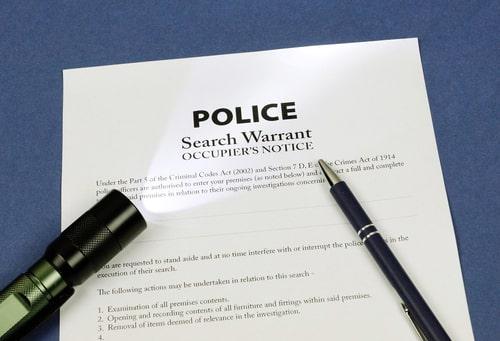How the Fourth Amendment Protects Can Result in Dismissal of Criminal Evidence
 Although the media is often filled with stories about incidents where law enforcement overstepped their legal authority, there are laws in place to protect citizens when those misuse of powers occurs, especially if the citizen is charged with a crime as a result. One of the most important protections we have is the Fourth Amendment. This amendment protects from “unreasonable” searches by police. Read on to find out how this critical law can make a difference in your criminal case.
Although the media is often filled with stories about incidents where law enforcement overstepped their legal authority, there are laws in place to protect citizens when those misuse of powers occurs, especially if the citizen is charged with a crime as a result. One of the most important protections we have is the Fourth Amendment. This amendment protects from “unreasonable” searches by police. Read on to find out how this critical law can make a difference in your criminal case.
Obtaining a Warrant
The Fourth Amendment grants the right to citizens “to be secure in their persons, house, papers, and effects.” It protects against unreasonable search and seizures by police, meaning that an officer must have a warrant in order to perform a search. A warrant is a legal document issued by a judge that gives police the right to search, however, police are required to show probable cause why they think the search is necessary for obtaining evidence of a crime.
The police must also be very specific as to what areas they need to search – the warrant does not give police blanket permission to search anywhere – and what evidence they are looking for.
Over the years, legal challenges to the Fourth Amendment have been many, stressing, even more, the importance of this critical law. The U.S. Supreme Court has upheld the law in several landmark cases, including Weeks v. United States (2014), Katz v. United States (1967), Kyllo v. United States (2001), and Carpenter v. United States (2008).
Warrant Rule Exceptions
Although the Fourth Amendment is in place, there are exceptions to the warrant rule that every citizen should be aware of. While police do need a warrant to search a person’s home, they do not need a warrant to search a person’s vehicle if they have probable cause. The legal standard of probable cause in the United States criminal justice system is the “reasonable person” standard, meaning that probable cause exists when the facts and circumstances known to the officer would lead a reasonable person to believe that probable cause exists.
For example, if a police officer stops a vehicle because the car’s brake light was out and during the verbal exchange with the driver the officer notices drug paraphernalia in the back seat, that would be probable cause for the officer to search the vehicle for illegal drugs.
As some of the many Supreme Court cases show, probable cause can be subjective and having a skilled defense attorney defending you could result in evidence being thrown out if your attorney can show that the search and seizure that garnered that evidence violated your Fourth Amendment right.
Contact a Santa Clara County Defense Lawyer
If you have been charged with a crime, do not delay in contacting a skilled San Jose, CA criminal defense attorney to begin building your defense. Call Fuller Law Firm at 408-234-7563 to schedule a free and confidential consultation.
Sources:
https://constitution.congress.gov/constitution/amendment-4/
https://people.cs.umass.edu/~liberato/courses/2018-fall-compsci391l/cases-and-articles/Katz.opinion.pdf
https://casetext.com/analysis/weeks-v-us-case-brief
https://www.supremecourt.gov/opinions/17pdf/16-402_h315.pdf






